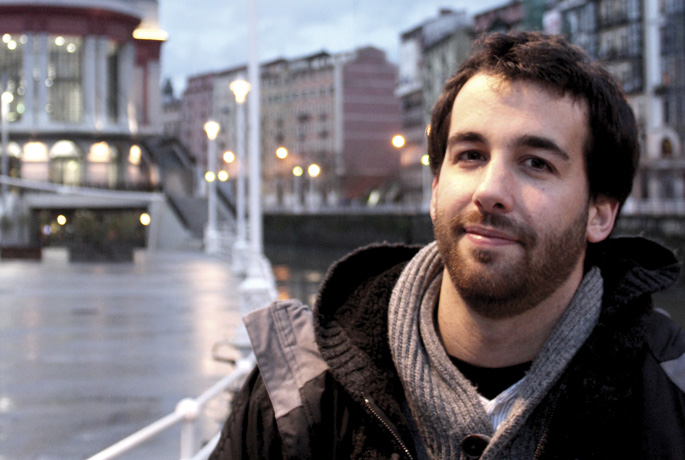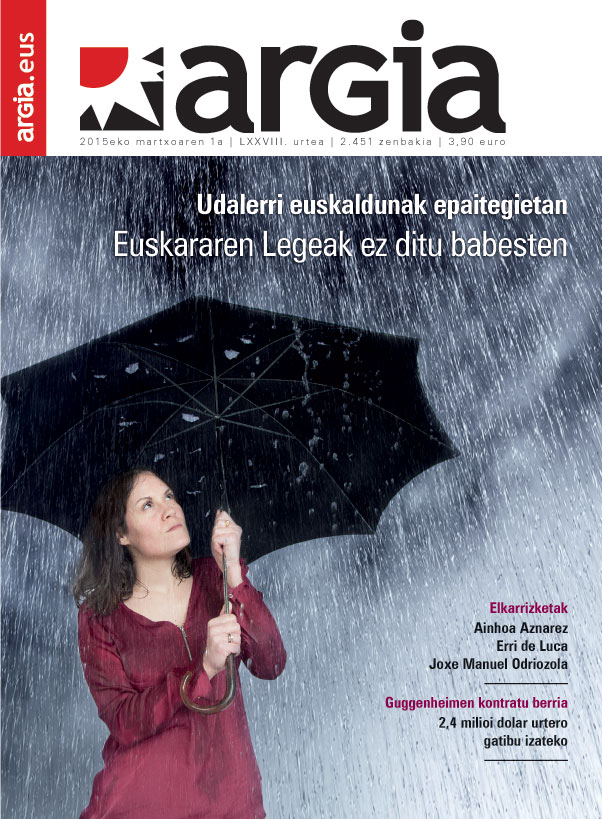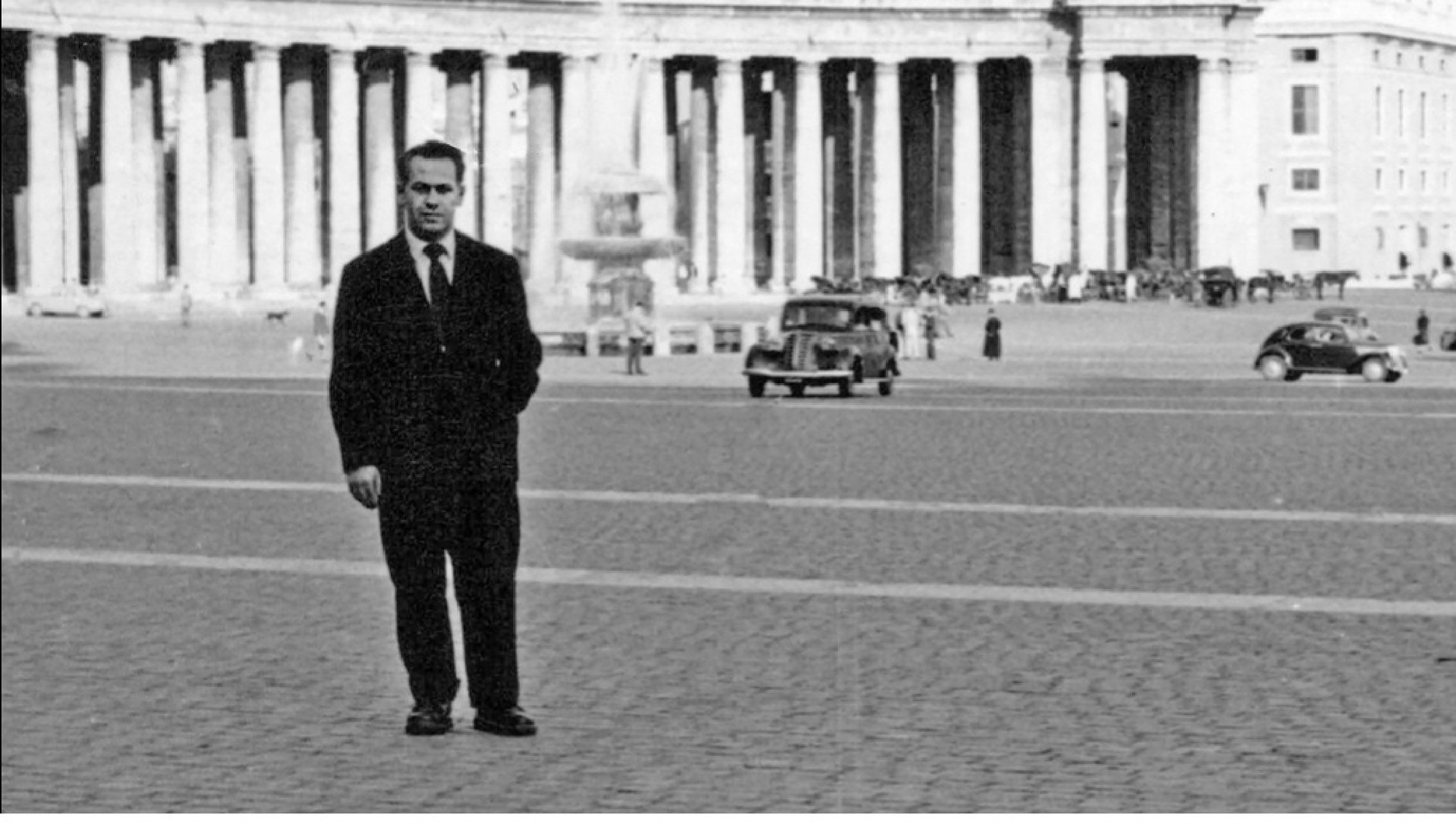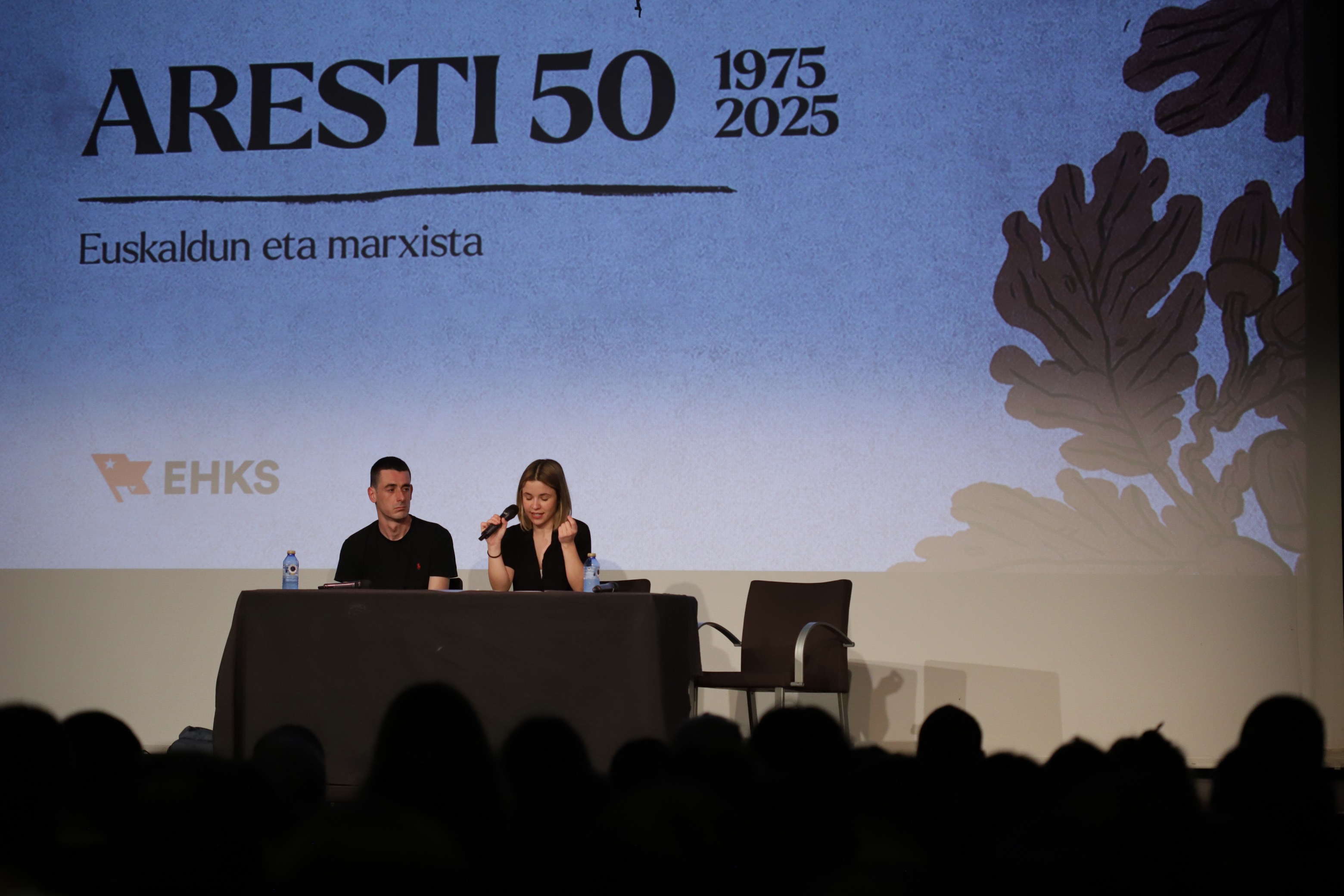"When you hear of a leak, you feel sympathy for the protagonist."
- Under the name of tunnels, linens, costumes and bafles, Josu Martínez (Bilbao, 1986) has put together in a book ten people who have fled or tried to escape, helped by the Tene Mujika scholarship. At first they needed eleven, but the protagonist of the eleventh story asked him not to make public his escape until the case he was waiting for was resolved. He says that the book is a small contribution to the recovery of memory, “a book to read with a smile.

In his preamble he mentions that he has always drawn attention to the scarce literature that has been written on the leaks that occurred in the Basque Country.
I think that in these 50 years, that so-called conflict of violence has been so violent everywhere, that there are a thousand stories to make literature, film, etc. Most of them haven't been counted, and escapes in jail are a candy. There will be someone who does not do the same, but when he knows a getaway, he feels sympathy for the protagonist, it is considered a travesura. Not much has been written about that, perhaps because the issue has been taboo while the conflict has been very present. There is also the issue of escapes: if there are still many prisoners, it will be in danger.
The last story you've told is that of 2009, but most of them are farther away in time. Has it remained in the past to try to escape from prison?
The objective fact is that there are now fewer prisoners fleeing. In the book I've tried to include those who are closest to today, but the reality prevails: most leaks occurred in the 1970s and 1980s. It would be for different reasons, but if there is no escape now, I do not think it is because the prisoners do not try. Security measures have been extremely stringent and there have been no incidents. Moreover, if it were now an attempt to escape, many would see it as an act contrary to the peace process.
He's used another tone in the book, he's written it from humor.
I did it because the stories demanded it from me, I've written it as I've perceived it. It's not a humor book. What you're told is very serious, but they're stories that admit a smile, in its hardness.
You've used different writing techniques, sometimes closer to the journalistic chronicle, sometimes to the fiction novel.
These things are often rationalized after they have been written. Some way I've used it at the request of history. Sometimes I have also gone into the story, to add a point of comeity, when something has happened to me with that story.
Why not a movie given your connection to film? Why the book?
Making this book in the form of a movie would cost about 30 times more money. A getaway can be very cinematic, but it seemed to me a good format to tell “briefly” more of a story. I don't look so much in writing or in image, the important thing is to tell the story. There may be ten beautiful fictional films inside the book, but I'm not going to do them myself.
Have you felt the desire to tell the protagonists what you have lived?
Ten stories are ten characters and there's everything; some want to tell you everything with all the details, but there's someone who doesn't want or doesn't want to take the story away. I've received calls or letters from a lot of people wanting to tell their leakage, even after the book was published.
Iñaki Pikabea asks Piti in the book: What does it mean for a prisoner to flee?
The attempt to escape is something that arises from a traumatic situation, a fracture, going well or badly. It's always there, but everyone digests in their own way. That also gives variety to the book, because if not, all stories would be the same.
Have you tried to work another point of view in more well-known getaways?
Yes, for example, in the case of the escape of Segovia, you don't want to tell the movie. In the history that everyone knows, I have tried to tell something that is not so familiar, telling the story of the Catalans who participated in the flight.
Instead, to tell the Martutene flight of 1985, you went to Piti after Sarrionandia was wrong.
You don't have to believe everything, there are things that may be literature. I would like to tell you for the first time what Sarrionandia has never told, but on the other hand, I also say this in the book, I sincerely believe that he has to write in his autobiography. Given the importance of the character, it would be a pity if in a book of ten stories, only about five pages were offered to that. Write it down by him.
In any case, Sarrionandia has written a little reverence in the book, Philosophy a little bit about leakage. What does it bring to you?
It's a very well-rounded book. It deals with a more philosophical aspect of prison and flight, which I, in a jocose tone, have abandoned. Then, someone who has been in jail can write bien.Cuando Sarrionandia read the manuscript of the book, promised to make a prologue if he managed to maintain the humorous tone of the book. In the end, he wrote a much deeper text, and then we put it as an epilogue.
Do you have anything to do with the ten stories you've told?
I've had fun writing everyone and it's been a pleasure to listen to the protagonists. If I picked one, I would stay with IK. As for the organisation, I think it is exceptional, also for a good film. Two of his colleagues, Maddi Hegi and Gabi Mouesca, were released after entering prison without firing a shot. Maddi Hegi was going to leave a few months, but he wanted to take part in the flight. However, it had a tragic end; shortly after the flight, when the gendarmerie went to stop them, a gendarmerie ran after him, being tied to a rail and the train took to both. It happened the day that summer starts, June 23, and the most poetic thing is that Maddi Hegi's name of war was "Summer." The story is completely unknown, and Maddi had all the characteristics to be forgotten: the Norte, the Mujer and the IK.
Now that everyone has become more Franciscan than the Pope, it’s worth remembering our unsurpassed classics. There was one in the 17th century, his grace was Arnaut Oienart. And since we can’t immerse ourselves in all his works, today we will praise O.ten youth in... [+]
Aurreko tertuliako galderari erantzuteko beste modu bat izan zitekeen, akaso modu inplizituago batean, bigarren solasaldi honetako izenburua. Figura literarioaz gaindi, pertsonaia zalantzan jartzeko, edo, kontrara, pertsonaiaren testuingurua ulertzeko saiakera bat. Santi... [+]
Astelehen honetan hasita, astebetez, Jon Miranderen obra izango dute aztergai: besteren artean, Mirande nor zen argitzeaz eta errepasatzeaz gain, bere figurarekin zer egin hausnartuko dute, polemikoak baitira bere hainbat adierazpen eta testu.
Martxoaren 17an hasi eta hila bukatu bitartean, Literatura Plazara jaialdia egingo da Oiartzunen. Hirugarren urtez antolatu du egitasmoa 1545 argitaletxeak, bigarrenez bi asteko formatuan. "Literaturak plaza hartzea nahi dugu, partekatzen dugun zaletasuna ageri-agerian... [+]
1984an ‘Bizitza Nola Badoan’ lehen poema liburua (Maiatz) argitaratu zuenetik hainbat poema-liburu, narrazio eta eleberri argitaratu ditu Itxaro Borda idazleak. 2024an argitaratu zuen azken lana, ‘Itzalen tektonika’ (SUSA), eta egunero zutabea idazten du... [+]























